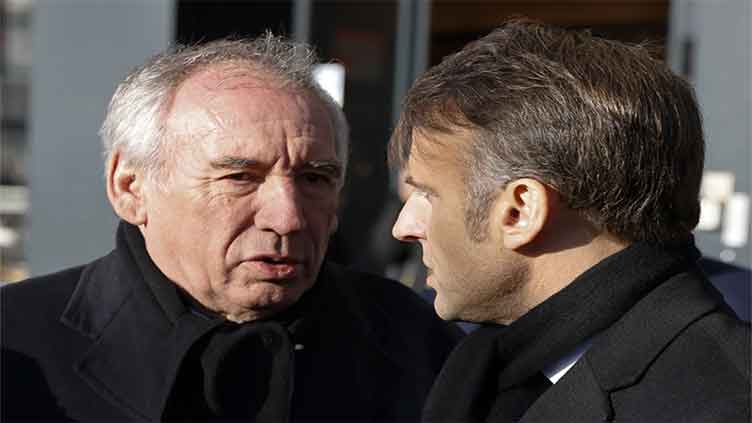France's new prime minister faces first big test during period of political instability, budget woes Image

World
France’s new prime minister faces first big test during period of political instability, budget woes
PARIS (AP) — France’s new prime minister, François Bayrou, is facing his first major test at parliament on Tuesday as his government has no majority amid unprecedented political instability.
Bayrou will address lawmakers through a general policy speech meant to outline his top priorities, including key budget decisions, one month after he was appointed by President Emmanuel Macron.
What is Bayrou proposing?
Bayrou urgently needs to pass a budget bill for 2025. Following the collapse of the previous government, an emergency law has been approved to enable the state to levy taxes from Jan. 1, pay basic expenses and avoid a shutdown.
But only a proper budget would help reduce France’s deficit and allow key expenses such as defense measures needed amid the war in Ukraine or aid promised to angry farmers.
Financial markets, ratings agencies and the European Commission are pushing France to comply with EU rules limiting debt and keep France’s borrowing costs from spiraling. That would threaten the prosperity of eurozone countries.
France’s deficit is estimated to reach 6% of its gross domestic product in 2024. Finance Minister Éric Lombard said last week the government is “aiming for a deficit of between 5 and 5.5%” this year.
When he took office, Bayrou said that “no one knows the difficulty of the situation better” than he does, comparing the challenges faced to an “Himalaya.”
Can the government be toppled again?
Bayrou’s Cabinet relies on a fragile deal between Macron’s centrist allies and conservatives of The Republicans party who even together have no parliamentary majority.
The previous government was in place for only three months before being brought down by opposition lawmakers from both the left and the far right amid a budget dispute.
To avoid a repetition of that scenario, Bayrou seeks to secure a nonaggression pact with the Socialists so that they wouldn’t support any future move to topple the new government.
The Socialists said they are open to talks on the condition that they would include negotiations on Macron’s unpopular pension reform that passed two years ago.
However, the possibility of another no-confidence vote is still looming.
The hard-left France Unbowed party refused to enter into talks with the government and already announced it would file a no-confidence motion.
A vote later this week would have little chance of succeeding as the far right appears unwilling to support such move in the immediate term.
Yet the question could be raised again during the future budget debate at parliament, with more uncertainty on the result.
Why pension reform talks are key?
Macron’s plan to raise the retirement age from 62 to 64 unleashed months of mass protests from January to June 2023 that damaged his leadership. The legislation, which has gradually started being implemented, also requires people to work 43 years to receive a full pension.
The Socialists are now urging Bayrou to announce a “suspension” of the reform in order to provide time to renegotiate it, with the aim of backtracking on the age of 64 and introducing specific measures for those who have long careers and certain professions considered to be hard work.
A suspension, if it was to be announced, would prompt anger on the other side of the political spectrum, possibly weakening Bayrou’s government even further.
The conservative Senate president, Gérard Larcher, warned that the pension measures shouldn’t be suspended or rescinded.
“If we were to repeal the pension reform, the cost would be 3.4 billion euros ($3,47 billion) in 2025 and almost 16 billion ($16.3 billion) in 2032,” he said.
Does the far right still have leverage?
Far-right leader Marine Le Pen — Macron’s fiercest rival — was instrumental in ousting the previous government.
Bayrou consulted her when forming the new government, and Le Pen remains a powerful force. Her National Rally party has the largest single group in the National Assembly, France’s powerful lower house of parliament.
In recent days, Bayrou’s government sought to sideline Le Pen by negotiating instead with the Socialists, the Greens and the Communists on budget issues.
The president of the National Rally, Jordan Bardella, criticized those talks and warned Monday that his party would oppose any budget that would raise the cost of medication, provide more health care for migrants staying illegally in the country and impose new taxes on businesses. Such measures would justify a no-confidence vote, he said.
But Le Pen faces her own headaches in the months to come — a March court ruling over alleged illegal party financing could see her barred from running for office.


